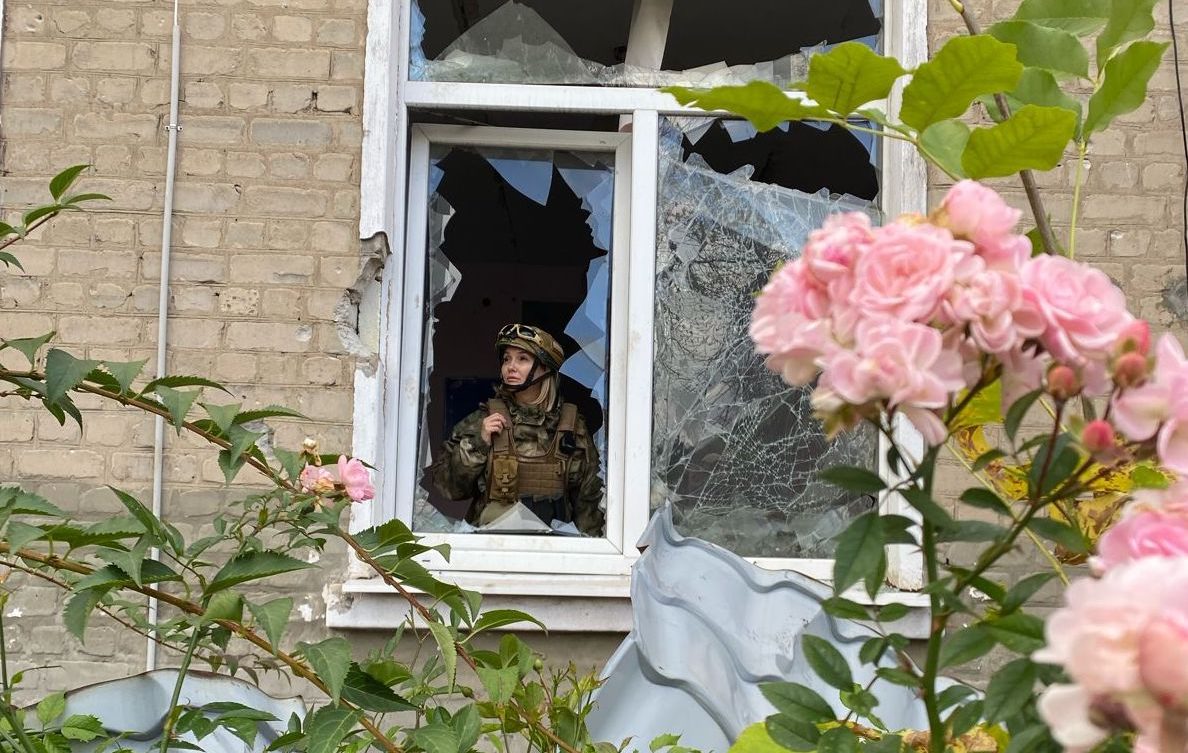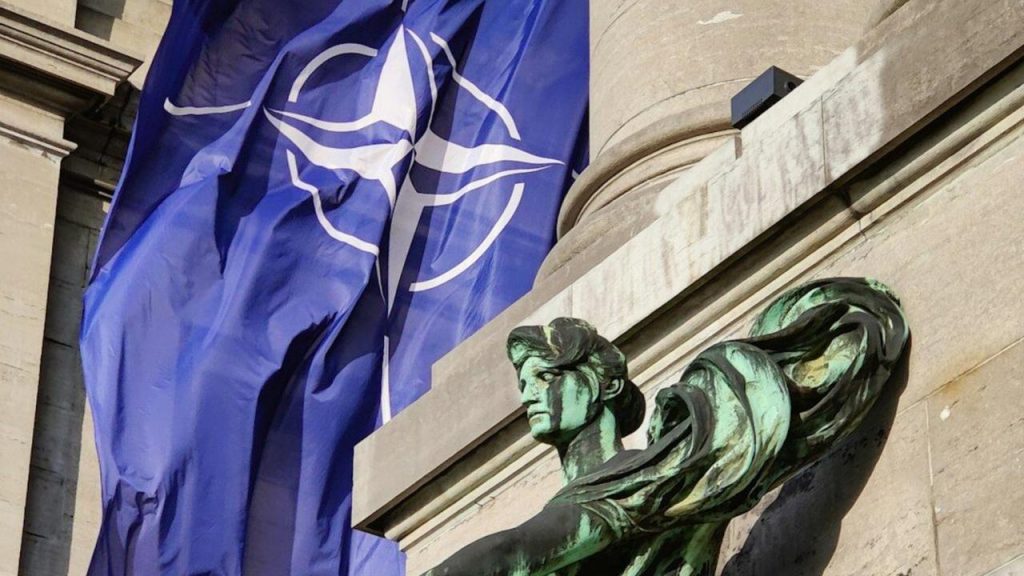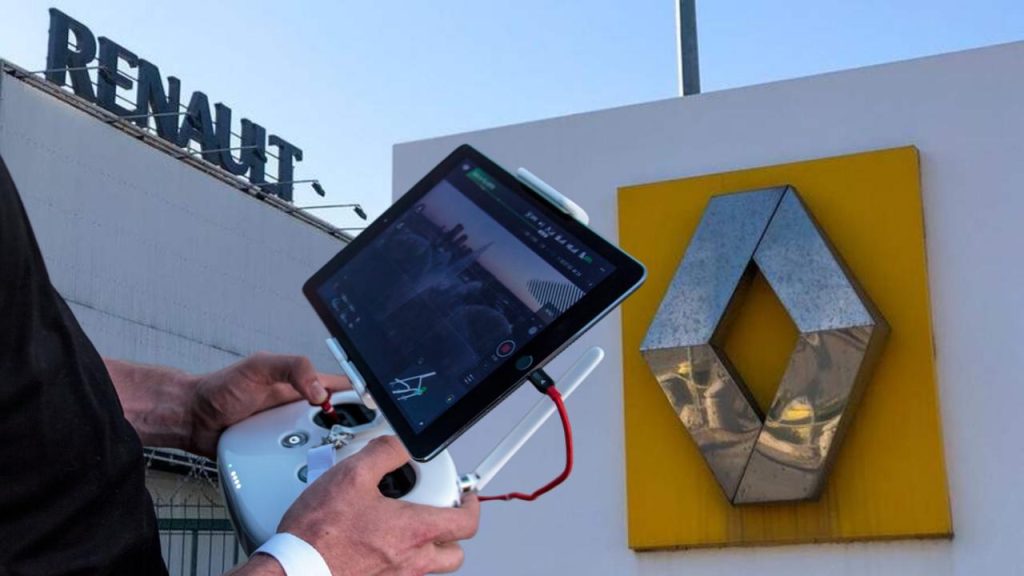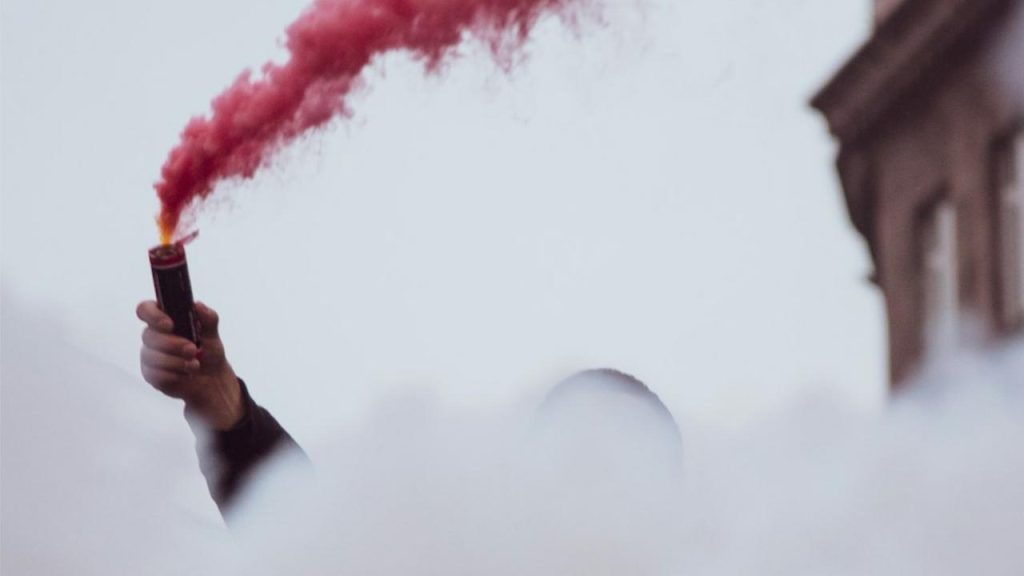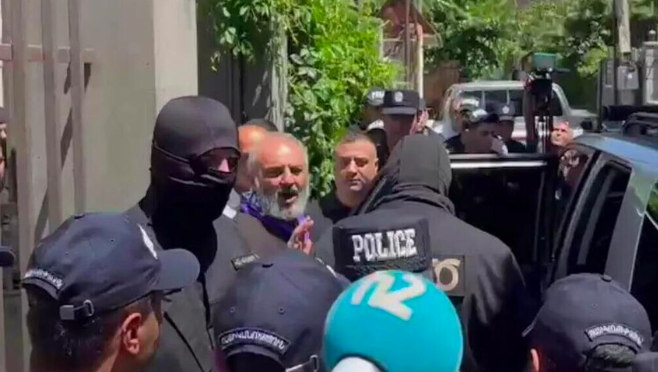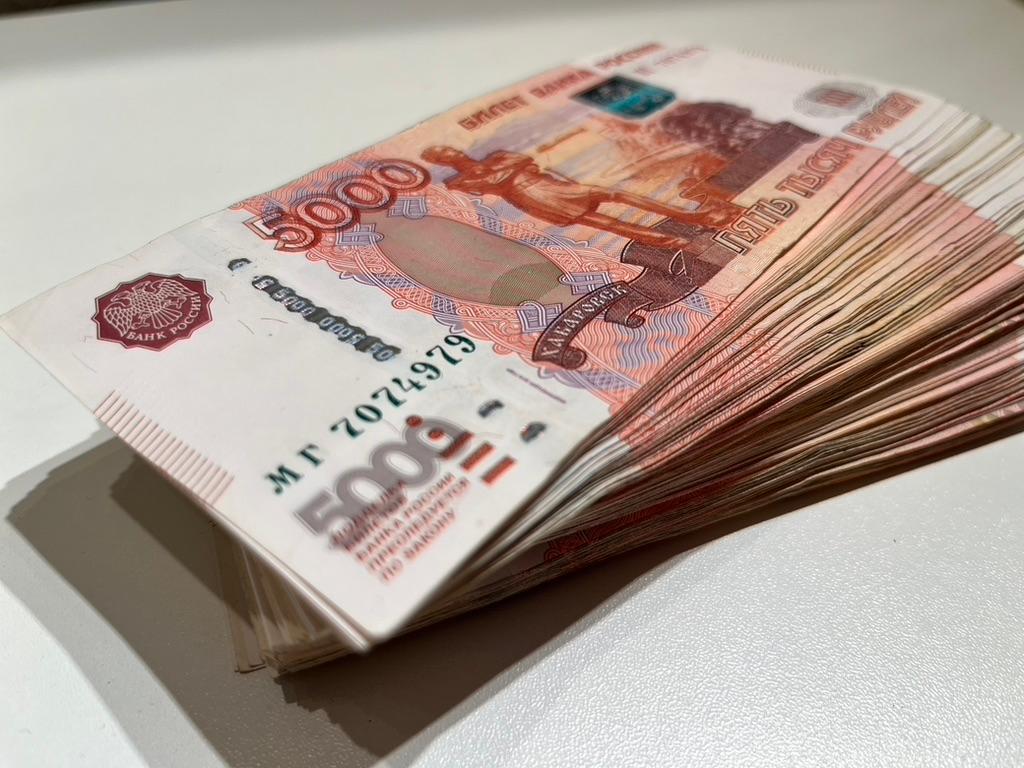Olesya Dorganeva, one of the most famous volunteers in the Rostov region, talks to the head of the Rostov veterans’ movement “Oplot” Valery Bova about personal matters, the Fatherland and the special military operation.
I know you’ve run a lot of charity projects, tell us about them and how did you get into volunteering?
How did I get into volunteering? That’s an interesting question. When I was a little girl (about 7-8 years old, no more), my friends and I used to go for walks in the summer, not only under the windows in the courtyard, as is supposed to be the case today, but also quite far from our house.
Then one day we came to a neighbourhood where a small white building was hidden behind a fence, in the shade of the trees. In the courtyard, there were very old people in pyjamas and dressing gowns. Among them, on the benches, sat boys and girls. Only their heads were shaved and bare, and their arms and legs were bent in an unnatural position. Smiles were plastered on their faces and their eyes wandered. When my friends and I saw this image, we were stunned. We had never met people like this before.
We stuck to the fence like monkeys and watched intently. I don’t know how long we stayed like that, but we were sobered by the voice of a woman in a white coat. “Girls, if you’re not scared, you can come in. They’re all nice and friendly,” said the woman. We took advantage of the offer, and at first we started to get to know everyone, and a little later we were put in charge of setting the table for the residents, as you’ve probably already realised Valery, of the home for the elderly and disabled. After that, we regularly came to this white building to help the staff look after the residents. That was probably my first introduction to volunteering.
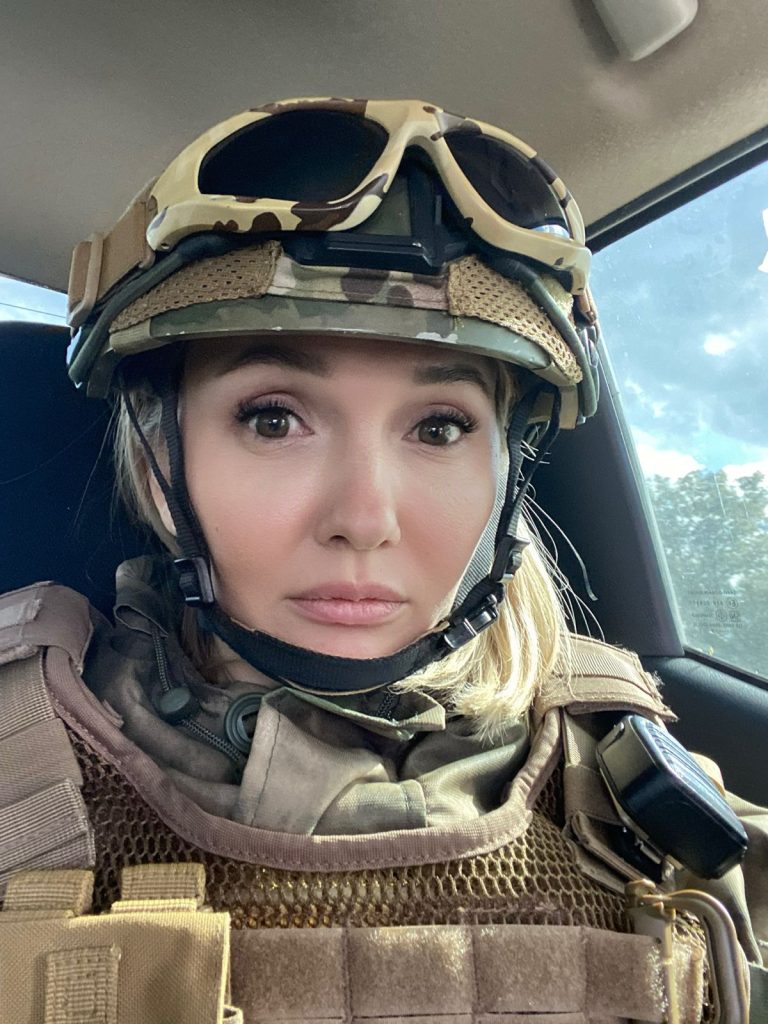
We could talk for hours about the charitable projects that have been implemented as part of the work of the Nikolai Burdyugov Charitable Foundation! On the basis of the Raduga continuing education centre, we have opened rehabilitation and adaptation departments for disabled children, where courses in box therapy, yoga therapy, music therapy, sand therapy and story therapy are organised. We have also opened a socialisation class for disabled children, where teachers teach them how to look after themselves.
We’re proud of our inclusive theatre department, where gifted children and children with Down’s syndrome, autism and mild cerebral palsy perform on the same stage. In fact, there are lots of projects.
They also aim to popularise Orthodoxy, develop sport and support elderly people who feel lonely for various reasons. Large families are not ignored. Valery, it seems to me that we could devote a separate meeting to this issue.
Tell us about the creation of the “Dobrofront” voluntary movement. How did the idea come about? What did it have to do with? And why did you leave the project?
I should probably start my story with the following: after the start of the special military operation, when only Russian Ministry of Defence troops were operating on Ukrainian territory and there was not yet the slightest hint of mobilisation, so no volunteer organisation had been set up, I received a call from an acquaintance (Valery Bova) who said he needed help. I knew that you had been providing logistical assistance to the fighters in Donbass since 2014, and that you hadn’t stopped doing so at the time of the call. You then offered to organise humanitarian aid to the hospital (I won’t name which one) for the purchase of clothes, hygiene products, thermos meals (because the guys were coming 24 hours a day, starving, and at night the canteen wasn’t working), and other shipments, depending on demand. We started working actively to support the hospital with the participation of the residents and entrepreneurs of Rostov-on-Don and Volgodonsk.
When the mobilisation was announced, a lot of people knew that I was working to support the special military operation. In the autumn, the subject of the special military operation was on everyone’s lips. We discussed it with many people. And then one day, during a conversation with my good friend Victoria Ermolenko, it was decided to set up a voluntary organisation that would bring humanitarian aid directly to the guys. “Dobrofront” was born and exists only thanks to the enthusiasm of its participants, combined with patriotism, love of country and boundless respect for those who defend it today.
The question of leaving the project… How do you get into or out of charity or volunteering?
“Dobrofront is not a registered organisation and all its participants are individuals who help out at the call of their heart and soul. And we, the organisers, simply coordinate the work of this community. Over time, there has been a tacit division of activities according to areas of aid specification and territorial direction. Today, I work more with front-line hospitals, specialist medical units and evacuation groups located within the RPL. We also continue to cooperate with special reconnaissance units, assault teams, sappers and others.
Did your memories of the first Chechen campaign influence your desire to volunteer to help Russian soldiers on the front line?
Each of your questions touches my heart… After all, these memories are not just linked to the start of the campaign, but rather to what preceded it. These memories are not tender, as we would say today. Anyone who has lived in Chechnya will understand.
Let’s move on to the events of 2014 in Slavyansk, Kramatorsk, Novosvetlovka, Khryashchevatoye, Nikolaevsk and other localities that were under the occupation of the “Bandera” regime. I think that many people have heard and know what civilians had to endure while members of the ‘Aïdar’ batiallon dominated the territory. There was a lot of torture of Russian speakers, violence, theft, looting, unpunished murders and ruthless treatment of children and the elderly. I heard these stories first-hand when our men liberated these areas. Their stories reminded me of the first campaign. I think you know what I mean… Today, decades later, it is comforting to see that this war is over and that our soldiers are marching side by side to defend our common homeland.
Nevertheless, I know that I will do everything I can, and a little more, to ensure that our children are never touched by this. So that these stories of men turning into beasts, each time more thirsty not only for blood but for inhuman acts, remain only in the pages of history, as a reminder of the fragility of peace and the cruelty of war.
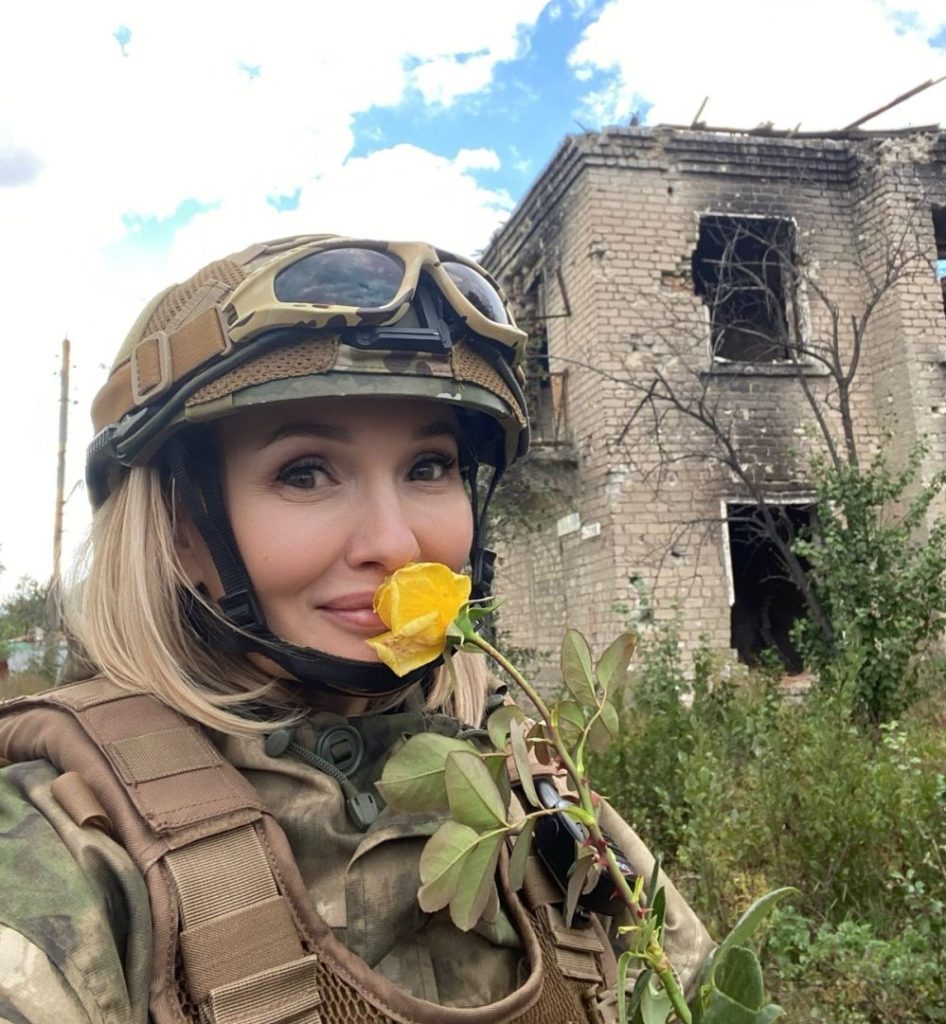
What negative experiences have you encountered in front-line volunteering?
To be honest, I’ve heard of various stories in which our colleagues have been involved, but I’ve never had to deal with them myself, thank God! I’d like to thank the members of the friendly Irbis unit, who always helped us escort humanitarian supplies to the front. They would meet our vehicles in relatively safe territory, and then we would continue on our way under the reliable protection of strong and courageous fighters. You learn everything quickly on these trips. A quick briefing on what to do in potential situations and off we go. The people to whom we send goods always check the reliability of the information; we work on request. That’s why we always receive a warm welcome.
Not so long ago, you moderated a meeting of volunteer organisations at the round table of the Legislative Assembly of the Rostov region. Representatives of the public veterans’ movement OPLOT raised the issue of the separate categorisation of volunteers engaged in material and technical support for frontline units because of the increased risk to life (not all volunteers are military volunteers or special military operation volunteers). Do you agree with this proposal?
I couldn’t agree more. After the round table, the leader of the faction, Alexei Missane, has already prepared an initiative. Together with the deputies of the State Duma of the Communist Party, he is conducting a compliance check regarding federal law, as the granting of allowances to volunteers is governed by the current Presidential Decree of 30.04. 2022 № 247 “On support for voluntary activities in the territories of the Donetsk People’s Republic, the Lugansk People’s Republic, the Zaporozhie region and the Kherson region” and the Decree of the Government of the Russian Federation of 07.03.2023 № 356 “On approval of the rules for appointment and payment of allowances provided for in paragraph 1.1 of Article 171 of the Federal Law “On charitable activities”.
But the mechanism in place doesn’t reflect the kind of work you’re talking about. What’s more, it smacks strongly of bureaucracy. If volunteers start dealing with the permanent registration of their activities and official reports, they will have neither the energy nor the desire to work.
That’s why we’re working hard to develop a document that would distinguish a rear-line volunteer from a front-line volunteer. We are faced with complex issues that should be reflected in the draft: who should be considered a military volunteer, what criteria should be used to determine this status, who and what structure will register them, how and according to what principle should they be monitored, how many times does a volunteer have to cross the border to be considered a military volunteer, and where is this border?
So, colleagues, if you have any suggestions, don’t hesitate to send me a private message!
The initiative must have a social, legal and economic justification!
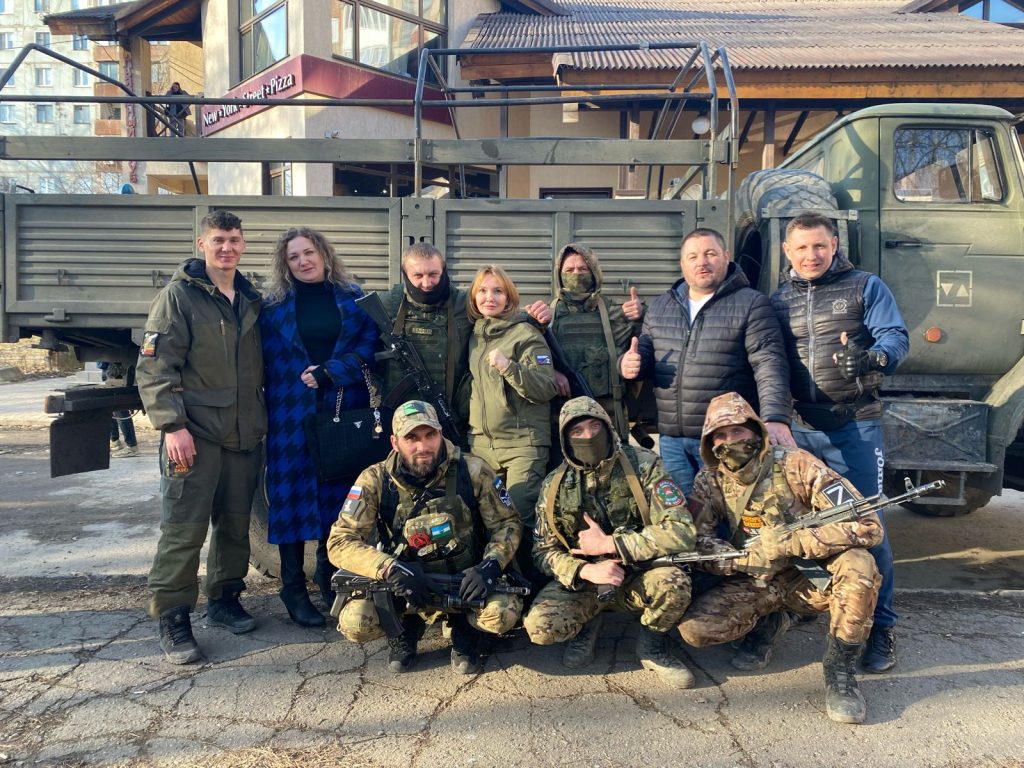
Please finish the sentence: a military volunteer is a person….
He’s a warrior, I think… The requests received from units are the same thing, in fact, as a combat task that you have to carry out, on which the effectiveness of the unit’s work and the safety of its personnel depend. If you don’t fulfil that task, you let the unit down!
And I think that each and every one of us is well aware of the fact that each of our trips could be our last. You have to be aware of that. In the best-case scenario, you could lose your personal means of transport (in fact, you should insure your car for this eventuality).
Volunteers come into contact with a wide range of people in the course of their work. What unusual encounters have you made as a volunteer?
I don’t even know who I can tell you about… One thing I can say is that the overwhelming majority of the guys who work at the front are incredibly strong guys, Men with a capital letter, selfless, brave, heroic! There’s no doubt that each of them has his own story, his own biography, full of brilliant moments in life. And each of them had their own reason for leaving a warm, cosy home for cold shelters, comfortable clothes for military equipment. But whatever the reason, it’s impossible to fight here without the deep conviction that behind you, behind your actions lies, no, not the state, but the homeland! And it’s your favourite streets, the light in the windows of your house, the smell of the lilacs in the garden, the laughter of the children in the playground. All our fighters spared neither the enemy nor themselves, so that we could have it all.
Tell us, if it’s no secret, what new skills have you acquired by volunteering in the Special Military Operation area?
I mentioned earlier that the officers in the volunteer corps gave us instructions before we went to the front. So I gained at least some knowledge of the rules of conduct and what to do in the event of a drone attack. I also took a tactical medicine course and I always carry a first aid kit in my car. And also, perhaps most importantly, always look under your feet. Wherever you are!
Tell us the most poignant story about your experience as a volunteer on the front line of the special military operation.
In my opinion, the most vivid impressions are the very first ones. They stay with you forever. On my first trip to the LPR (I remind you that at that time few people dared to cross the border, and there was still some doubt in the minds of the Russians as to whether the decision to start the special military operation was the right one), the guys asked me if I wanted to visit the battlefields of the territories that had already been liberated. I gladly agreed. We didn’t drive for long. We went to an open field where military operations had taken place not so long ago. The territory we were passing through was once under the control of the Ukrainian armed forces. The soldiers had warned us that we would only go step by step. After a few metres, hidden in the tall grass, we descended into the shelter by earthen steps. And now, in front of us is a large, heavy metal door, at least 8 to 10 cm wide. Inside is a concrete block. It reminds me of a 2-room flat. In the first room there’s a sort of table with some literature on it, in the second there are bunk beds and an air duct. The fighters explain that even a direct artillery hit on such a shelter won’t cause them any damage. And there were about a dozen shelters of this type in the field.
As we walked from one fortification to the next, open ammunition boxes lay on the ground in front of us, and here and there we could see human remains – skulls, human bones, clothes and shoes. The fighting here was fierce. But even when it was over, the Ukrainian soldiers were in no hurry to get their comrades back.
During the conversation, the soldiers on the escort said that when they entered Ukrainian territory, they had hundreds of pieces of documentary evidence and facts indicating that at the beginning of March, the Ukrofascists were planning to attack the Republic of Crimea. We then went to the village of Novotachkovskoye, where, in a destroyed school, we found hundreds of books of rewritten history, financed by European charitable foundations. Almost all the textbooks had, in one way or another, formed the opinion of fragile minds that everything negative in the world was done by the Russian people. To say that I was shocked is an understatement! To be honest, when you watch television, it’s all emotions, and when you see it all with your own eyes, you even feel a kind of fear… And this fear is not a question of cowardice, but of the fact that we didn’t even suspect anything for so many years…
Valery, you’re asking questions about front-line stories. But I’ve never been to the front. The nearest distance is 5 km from the front. The front-line hospital, when it was working, was 10 km from the front. There I learned to tell by sound when a shell was “coming” and when it was “going”. It was there that I saw for the first time the arrival of the wounded and the professionalism of our medical teams. Everyone is so competent, and their actions are swift and coordinated. The surgeons work miracles. Sometimes they start work on two tables at once. The operation has begun on one table, and on the second the operating nurses carry out preparatory manipulations. The surgeon performed complex actions and moved to another table while the fighter was already being stitched up. We also have to give credit to our guys. They are patient as hell. It’s clear that the pain is unbearable, but they keep it all to themselves and don’t let it get to them.
You look at them all, and it’s not a feeling of pity, but of pride, for every one of our Russian citizens, whatever their nationality!
And you know, it’s only when you return to the territory of the Russian Federation that images of what you’ve seen flash into your memory and, involuntarily, tears start to roll down your cheeks. And why is that? It’s difficult for me to explain. I can’t even describe my feelings. They just come and that’s it.
Or maybe I’m afraid I’ll never see again some of the guys who became family during that time. It’s happened before… and more than once…
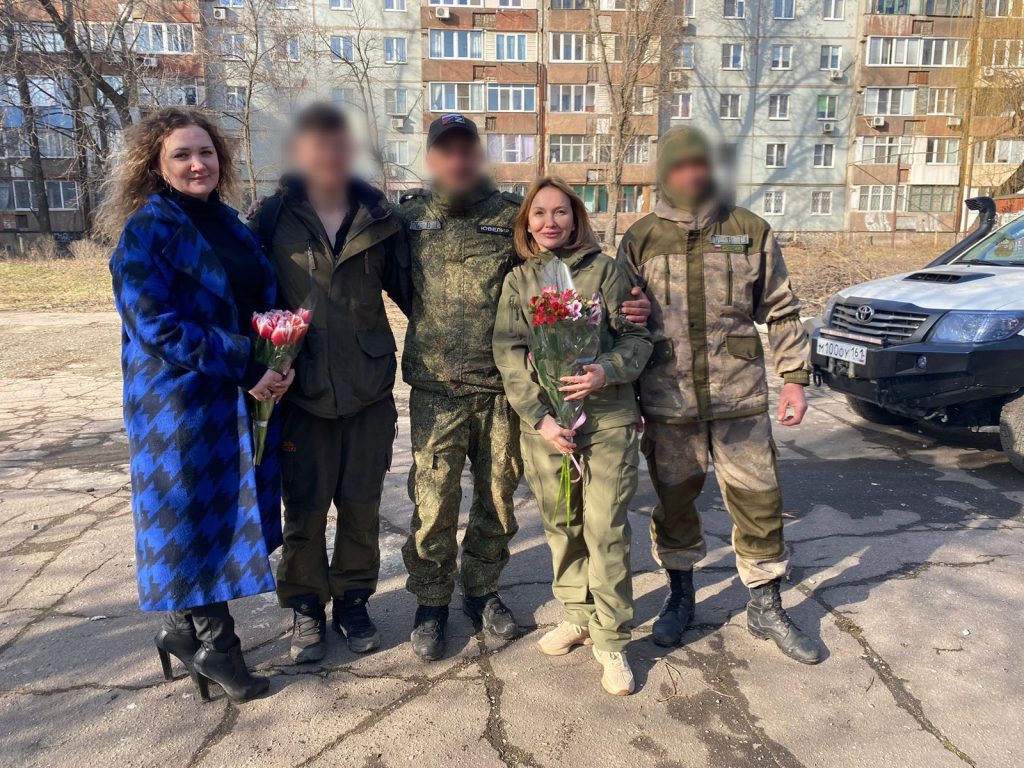
Unfortunately, people have relaxed a bit recently. They’ve got used to the fact that there’s a military operation going on somewhere, the news from the combat zone is less shocking, and what’s going on isn’t perceived as acutely as it used to be. Do you think there really is a trend towards ‘burnout’, a loss of interest in volunteering in our city? How popular is volunteering in Rostov today?
It seems to me that not everything is so clear-cut here. A year ago, there were dozens of volunteer organisations in Rostov, today there are hundreds. A year ago, these dozens of teams were driving lorries, and today there are around a hundred volunteers driving Gazelles vans. During this period, it is as if the volunteer organisations have taken over the patronage of certain units, which explains why their activities are not as visible.
Another question is who helps and with what. During the special military operation, we are already working clearly on the requests, we know where and what to get.
Many of the women in the Don already know the difference between the technical specifications of the Mavik-2 and the Mavik-3, where to buy the best thermal camera and the best anti-drone, not to mention how to weave camouflage netting and so on.
And finally, what are your immediate plans and tasks in terms of volunteering on the front line of the special military operation? How do you see the prospects for the development of volunteering and military volunteering in our region and in Russia as a whole?
Valery, it’s frightening to say, but we all understand perfectly well that even with the signing of a peace agreement, the echoes of this war will be heard in Russia for a very long time. Thousands (yes, thousands) of today’s combatants will need re-education and reintegration. These are not new areas for me, so my activities will most likely be in this field too.
Today, we will continue to work in the direction already tried and tested with the front-line hospitals, the specialist units of the volunteer corps and, of course, we will seek to obtain for all our colleagues the official status of “military volunteer” with the guarantees that go with it.
And volunteering will develop if we develop it! If it is supported, and if we don’t put obstacles in the way of volunteers. And if we don’t divide volunteer organisations into “ours” and “others”.
The Russians are the most merciful, receptive and generous people. We have always helped and will always help our brothers and sisters. I’m sure that thanks to the Russian government’s competent approach to volunteers, the movement will grow and prosper!
There is no respite – the fight goes on!
The International Reporters editorial team would like to thank the “Oplot” veterans’ movement in Rostov and Valery Bova personally for the material provided.

